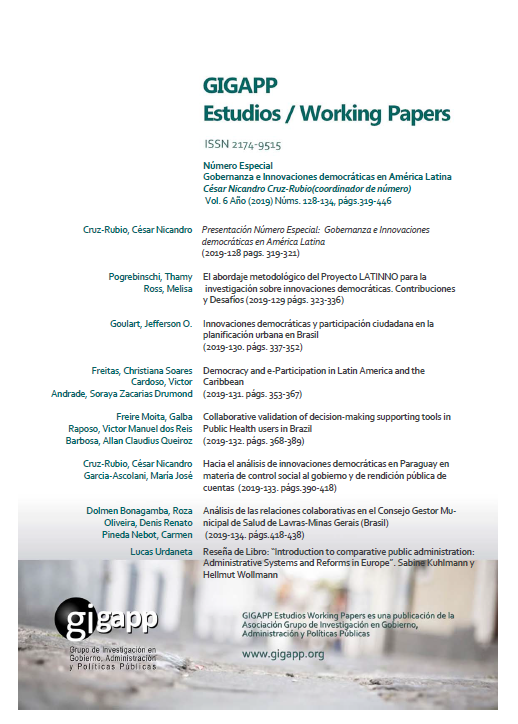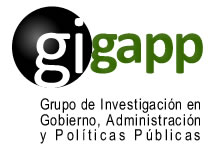El abordaje metodológico del Proyecto LATINNO para la investigación sobre innovaciones democráticas
Contribuciones y Desafíos
Abstract
This article presents some conceptual and methodological contributions of the LATINNO project for research on democratic innovations and citizen participation. First, the gaps in the preexisting knowledge that gave rise to the project are discussed. Second, the methodological framework and the original contributions that allowed registering comparable data on the context, institutional design and impact of more than 2,600 cases are presented. Third, the challenges encountered when evaluating the innovations impact are discussed. Finally, some directions are indicated for the development of a regional agenda on democratic innovations that can exploit the potential of the LATINNO database.
Downloads
Copyright (c) 2019 Thamy Pogrebinschi, Dra., Melisa Ross (Autor/a)

This work is licensed under a Creative Commons Attribution-NonCommercial-ShareAlike 4.0 International License.
Those authors who have publications with this journal, accept the following terms:
a. Authors will retain their copyrights and guarantee the journal the right of first publication of their work, which will be simultaneously subject to the Creative Commons Attribution-NonCommercial-ShareAlike 4.0 International (CC BY-NC-SA Recognition License). 4.0) that allows third parties to share the work as long as its author and its first publication are indicated in this journal.
Under this open access license, readers (users) can:
- Share — copy and redistribute the material in any medium or format
- Adapt — remix, transform, and build upon the material
Under the following terms:
-
Attribution — Users must give appropriate credit, provide a link to the license, and indicate if changes were made. You may do so in any reasonable manner, but not in any way that suggests the licensor endorses you or your use.
-
NonCommercial — Users may not use the material for commercial purposes.
-
ShareAlike — If remix, transform, or build upon the material, users must distribute your contributions under the same license as the original.
- No additional restrictions — Users may not apply legal terms or technological measures that legally restrict others from doing anything the license permits.
b. Authors may adopt other non-exclusive license agreements for the distribution of the version of the published work (eg: deposit it in an institutional telematic archive or publish it in a monographic volume) provided that the initial publication in this journal is indicated.
c. Authors are allowed and recommended to disseminate their work through the Internet (e.g. in institutional telematic files or on their website) before and during the submission process, which can lead to interesting exchanges and increase citations of the published work. (See The effects of open access).



